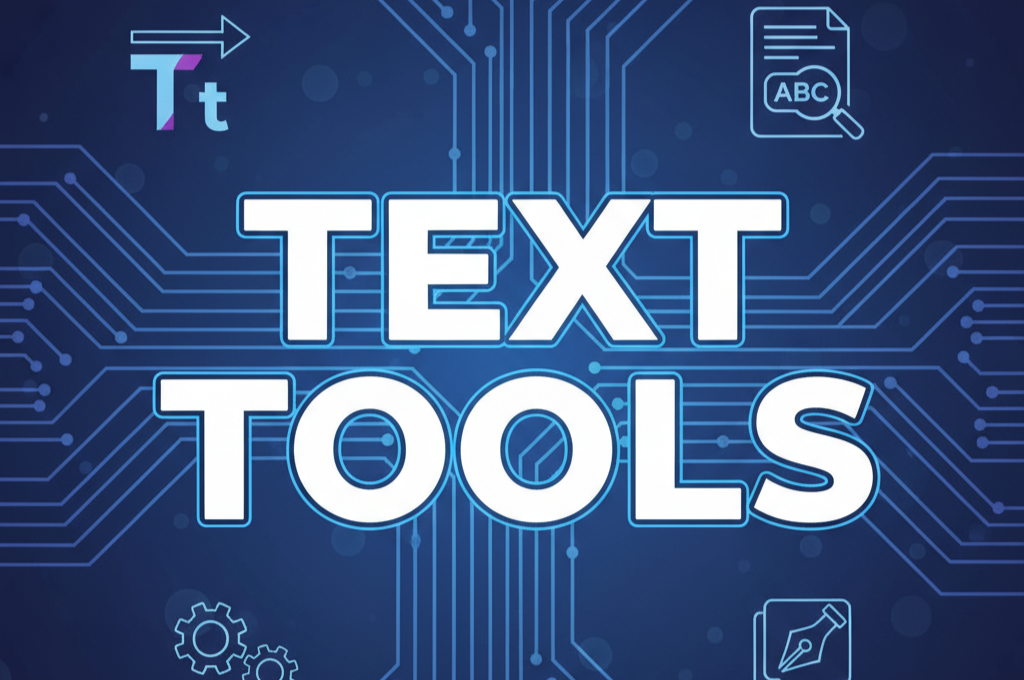Text Tools: Enhancing Your Digital Writing Experience
How modern text utilities are transforming the way we work with written content
In today's digital landscape, text remains the primary medium for communication, documentation, and information sharing. While we've moved beyond typewriters and basic word processors, the need for efficient text manipulation has only grown. This is where text tools come into play - specialized utilities designed to help us work with text more effectively.
What Are Text Tools?
Text tools are software applications or online utilities that perform specific operations on text. These range from simple functions like counting words to complex transformations like encoding/decoding, formatting, and analysis. They save time, reduce errors, and enhance productivity for writers, developers, students, and professionals across industries.
Why Text Tools Matter
In an era of information overload, the ability to quickly process and manipulate text is invaluable. Text tools help us extract meaning, ensure accuracy, and maintain consistency in our written communications.
Essential Text Tools for Everyday Use
Word Counters
Essential for writers adhering to length requirements, these tools provide instant character, word, and sentence counts.
Grammar Checkers
AI-powered tools that identify grammatical errors, suggest improvements, and enhance writing clarity.
Text Converters
Transform text between cases (upper, lower, title), encode/decode, or convert between different formats.
Plagiarism Checkers
Compare text against vast databases to ensure originality and proper attribution of sources.
Text Diff Tools
Highlight differences between two text documents, ideal for version comparison and editing.
SEO Analyzers
Evaluate content for search engine optimization, suggesting improvements for better visibility.
Advanced Text Processing Tools
Beyond basic utilities, advanced text tools leverage artificial intelligence and natural language processing to provide deeper insights. Sentiment analysis tools can determine the emotional tone of text, while summarization tools can condense lengthy documents into key points. Language translation tools have also become remarkably sophisticated, enabling near-instant translation between dozens of languages while preserving context and meaning.
Choosing the Right Text Tools
With countless options available, selecting appropriate text tools depends on your specific needs. Consider factors like:
- Your primary use case (writing, coding, data analysis)
- Required features and accuracy
- Integration with your existing workflow
- Privacy and data security concerns
- Cost versus value proposition
Many high-quality text tools are available for free online, while premium options often offer enhanced capabilities and dedicated support.
The Future of Text Tools
As AI continues to advance, text tools are becoming increasingly sophisticated. We're seeing the emergence of context-aware writing assistants that understand nuance and style, and tools that can generate human-like text based on minimal prompts. The future promises even more seamless integration of these capabilities into our daily digital experiences.
Conclusion
Text tools have evolved from simple utilities to powerful assistants that enhance our ability to communicate effectively. Whether you're a student polishing an essay, a developer debugging code, or a marketer optimizing content, there's a text tool designed to streamline your workflow. By leveraging these resources, we can work more efficiently, communicate more clearly, and focus on what matters most - creating meaningful content.
